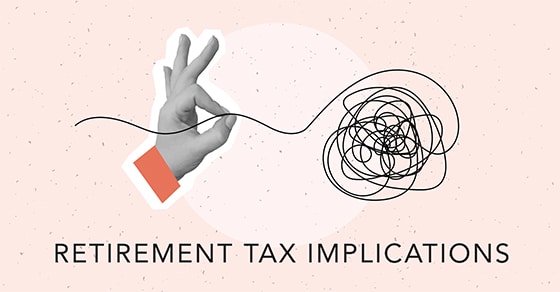If you own a business or are self-employed and haven’t already set up a tax-advantaged retirement plan, consider establishing one before you file your 2025 tax return. If you choose a Simplified Employee Pension (SEP), you’ll be able make deductible 2025 contributions to it, saving you taxes. Not only is the SEP deadline favorable, but […]
where one spouse earns little to no income. In such cases, a spousal IRA can be an effective and often overlooked tool to help build retirement savings for both partners — even if only one spouse is employed. It’s worth taking a closer look at how these accounts work and what the contribution limits are. […]
Today’s small to midsize businesses are often urged to help employees improve their financial wellness. And for good reason: Financially struggling workers tend to have higher stress and anxiety levels. They may be less productive and more prone to errors. Some might even decide to commit fraud. One hallmark of an employee facing serious financial […]
Retirement is often viewed as an opportunity to travel, spend time with family or simply enjoy the fruits of a long career. Yet the transition may bring a tangle of tax considerations. Planning carefully can help you minimize tax bills. Below are four steps to take if you’re approaching retirement, along with the tax implications. […]
Once you reach age 73, tax law requires you to begin taking withdrawals — called Required Minimum Distributions (RMDs) — from your traditional IRA, SIMPLE IRA and SEP IRA. Since funds can’t stay in these accounts indefinitely, it’s important to understand the rules behind RMDs, which can be pretty complex. Below, we address some common […]
When companies reach the point where they’re ready to sponsor a qualified retirement plan, the first one that may come to mind is the 401(k). But there are other, lesser-used options that could suit the distinctive needs of some business owners. Case in point: the 412(e)(3) plan. Nuts and bolts Unlike 401(k)s, which are defined contribution […]
If you’re age 50 or older, you can make extra “catch-up” contributions to certain types of retirement accounts. Many people fail to capitalize on this opportunity because they haven’t looked at the significant impact these extra contributions can have on their retirement-age wealth. If you’re worried that you won’t have enough money saved to be financially […]
If your business doesn’t already have a retirement plan, it might be a good time to take the plunge. Current retirement plan rules allow for significant tax-deductible contributions. For example, if you’re self-employed and set up a SEP-IRA, you can contribute up to 20% of your self-employment earnings, with a maximum contribution of $69,000 for […]
If you have a tax-favored retirement account, including a traditional IRA, you’ll become exposed to the federal income tax required minimum distribution (RMD) rules after reaching a certain age. If you inherit a tax-favored retirement account, including a traditional or Roth IRA, you’ll also have to deal with these rules. Specifically, you’ll have to: 1) […]
Some people mistakenly believe that Social Security benefits are always free from federal income tax. Unfortunately, that’s often not the case. In fact, depending on how much overall income you have, up to 85% of your benefits could be hit with federal income tax. While the truth about the federal income tax bite on Social […]









